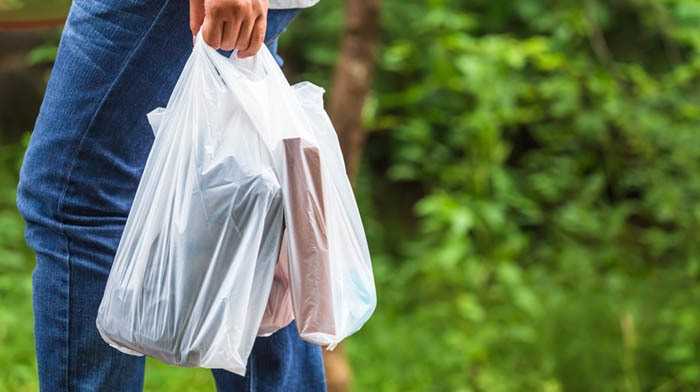
Plastic bags are a convenient but harmful part of our daily lives. They are used and discarded without much thought, but the damage they cause to the environment is staggering. In an effort to reduce plastic waste and promote environmental sustainability, the city of Pittsburgh has implemented a new plastic bag policy. This policy aims to educate and encourage citizens to use alternative options, such as reusable bags, and to reduce their reliance on single-use plastic bags.
The Pittsburgh plastic bag policy, which went into effect on January 1, 2022, imposes a fee on single-use plastic bags in certain establishments, including grocery stores, convenience stores, and retail shops. The fee is intended to discourage the use of plastic bags and incentivize customers to bring their own reusable bags. By implementing this policy, Pittsburgh joins a growing list of cities and states across the country that are taking steps to combat the plastic pollution crisis.
Under the new policy, customers will be charged a fee of 10 cents for each single-use plastic bag they request at participating establishments. This fee is not a tax, but rather a way to raise awareness and encourage behavior change. The money collected from the fees will be used to support local environmental initiatives and educational programs aimed at reducing plastic waste.
In addition to the fee, the city of Pittsburgh is also working with businesses to provide alternative options for customers. Many stores have started offering reusable bags for sale, and some even offer incentives, such as discounts or rewards, for customers who bring their own bags. By making these changes, Pittsburgh hopes to create a culture of sustainability and reduce the amount of plastic waste that ends up in landfills, rivers, and oceans.
It is important for residents and visitors of Pittsburgh to understand and comply with the plastic bag policy. By making a small change in our daily habits and opting for reusable bags, we can all contribute to a cleaner and greener city. Together, we can make a difference and protect our environment for future generations.
- Pittsburgh Plastic Bag Policy Overview
- Background on the Plastic Bag Issue
- Environmental Impact
- Pittsburgh’s Plastic Bag Policy
- Reasons for Implementing a Plastic Bag Policy
- Pittsburgh’s Plastic Bag Ban Ordinance
- Impact of the Plastic Bag Policy
- Alternatives to Plastic Bags in Pittsburgh
- Reusable Cloth Bags
- Paper Bags
- Biodegradable Plastic Bags
- How to Support the Plastic Bag Policy in Pittsburgh
- Question-answer:
- What is the Pittsburgh Plastic Bag Policy?
- When did the Pittsburgh Plastic Bag Policy come into effect?
- What are the main provisions of the Pittsburgh Plastic Bag Policy?
- How does the Pittsburgh Plastic Bag Policy benefit the environment?
- Are there any penalties for businesses that do not comply with the Pittsburgh Plastic Bag Policy?
- What is the plastic bag policy in Pittsburgh?
- When did the plastic bag policy go into effect in Pittsburgh?
Pittsburgh Plastic Bag Policy Overview
The Pittsburgh Plastic Bag Policy is a set of regulations aimed at reducing the use of single-use plastic bags in the city. These regulations were implemented in an effort to promote environmental sustainability and reduce the negative impact of plastic bags on the ecosystem.
Under the policy, retail establishments are prohibited from providing customers with single-use plastic bags. Instead, customers are encouraged to bring their own reusable bags or purchase alternative options, such as paper bags or durable plastic bags.
The policy applies to a wide range of retail businesses, including grocery stores, convenience stores, pharmacies, and clothing stores. It also encourages businesses to offer discounts or incentives to customers who bring their own bags, to further promote the use of reusable options.
In addition to the ban on single-use plastic bags, the Pittsburgh Plastic Bag Policy also requires affected businesses to maintain records of the number of alternative bags they distribute and report these numbers to the city government. This data allows the city to track progress towards reducing plastic bag usage and develop strategies to further minimize their impact.
The policy has been met with mixed reactions from businesses and residents. While some have welcomed the initiative and embraced the use of reusable bags, others have expressed concerns about the inconvenience and potential cost increase associated with the transition to alternative bag options.
| Benefits | Challenges |
|---|---|
|
|
Background on the Plastic Bag Issue
The use of plastic bags has become an environmental concern worldwide, including in Pittsburgh. Plastic bags are made from non-renewable resources such as petroleum and natural gas and take hundreds of years to break down in the environment. Their lightweight nature also contributes to the problem as they can easily be carried by wind and end up in waterways, forests, and other natural habitats.
Plastic bags are not biodegradable, meaning they do not degrade naturally and instead break down into smaller and smaller pieces known as microplastics. These microplastics can enter the food chain, as small animals mistake them for food, and can ultimately pose risks to human health. Additionally, plastic bags contribute to visual pollution and can harm wildlife through entanglement or ingestion.
The excessive use of plastic bags has resulted in a significant waste management issue, with many ending up in landfills or as litter in the environment. This has led to increased costs for waste management and negative impacts on the overall cleanliness and aesthetic appeal of the city.
In response to these concerns, many cities, including Pittsburgh, have implemented policies and regulations to reduce plastic bag use and encourage the use of reusable bags. These policies aim to address the environmental impact of plastic bags and promote more sustainable alternatives.
Environmental Impact

The environmental impact of plastic bags is extensive. In addition to their contribution to landfill waste and litter, plastic bags also have a negative impact on wildlife and ecosystems.
Pittsburgh’s Plastic Bag Policy

Pittsburgh’s plastic bag policy was introduced in [year] and aims to reduce the usage of single-use plastic bags by implementing a fee on each bag used by customers at certain retailers. The policy encourages consumers to bring their own reusable bags when shopping and provides an incentive for businesses to reduce plastic bag usage.
Reasons for Implementing a Plastic Bag Policy
There are several reasons why cities like Pittsburgh have chosen to implement a plastic bag policy. These policies are designed to address various environmental concerns associated with the use and disposal of single-use plastic bags. Some of the key reasons for implementing a plastic bag policy include:
|
1. Environmental Impact: Plastic bags are known to have a significant environmental impact. They contribute to pollution, litter, and waste. Plastic bags are not biodegradable and can take hundreds of years to decompose, leading to long-term environmental damage. |
2. Wildlife Protection: Plastic bags pose a threat to wildlife, particularly in marine environments. Animals can mistake plastic bags for food or become entangled in them, leading to injury or death. By reducing the use of plastic bags, cities can help protect wildlife habitats and prevent harm to animals. |
|
3. Resource Conservation: The production of plastic bags requires a significant amount of resources, including petroleum and natural gas. By limiting the use of plastic bags, cities can conserve these valuable resources and reduce their reliance on non-renewable fossil fuels. |
4. Waste Reduction: Plastic bags contribute to the growing problem of waste management. They can clog up recycling equipment, contaminate recycling streams, and create additional waste in landfills. By implementing a plastic bag policy, cities can reduce the amount of waste generated and improve their overall waste management practices. |
|
5. Promotion of Sustainable Alternatives: A plastic bag policy can also encourage the use of more sustainable alternatives, such as reusable bags. By reducing reliance on single-use plastic bags, cities can promote eco-friendly habits and encourage residents to make more environmentally responsible choices. |
6. Community Engagement: Implementing a plastic bag policy can spark community engagement and raise awareness about the importance of sustainability. It can encourage individuals, businesses, and organizations to come together to find innovative solutions to environmental challenges. |
By implementing a plastic bag policy, cities like Pittsburgh aim to address these environmental concerns and promote a more sustainable future for all.
Pittsburgh’s Plastic Bag Ban Ordinance
Pittsburgh’s Plastic Bag Ban Ordinance is a local law that restricts the use of single-use plastic bags within the city. The ordinance was implemented in order to reduce waste and protect the environment.
Under the ban, businesses are prohibited from providing customers with single-use plastic bags at checkout. Instead, customers are encouraged to bring their own reusable bags or purchase reusable bags from the store.
The ban applies to all retail establishments, including grocery stores, convenience stores, and pharmacies. It also includes food vendors, such as restaurants and food trucks.
There are certain exemptions to the ban. Plastic bags can still be provided for certain purposes, such as carrying produce, meat, and bulk items. However, these bags must be durable and reusable.
The ordinance also encourages businesses to provide alternative packaging options, such as paper bags or compostable bags, as an environmentally friendly alternative to single-use plastic bags.
Enforcement of the ban includes warnings and fines for non-compliance. Businesses found to be in violation of the ban may receive a warning for the first offense, followed by fines for subsequent offenses.
Pittsburgh’s Plastic Bag Ban Ordinance is part of a larger effort by the city to reduce waste and promote sustainable practices. By reducing the use of single-use plastic bags, Pittsburgh aims to protect its natural resources and create a cleaner, greener city.
Impact of the Plastic Bag Policy
The implementation of Pittsburgh’s plastic bag policy has had a significant impact on the city’s environment and community. By encouraging the use of reusable bags and reducing the consumption of single-use plastic bags, the policy aims to minimize plastic waste and promote sustainability.
Reduction in plastic waste: One of the key benefits of the plastic bag policy is the significant reduction in plastic waste. By discouraging the use of single-use plastic bags, the policy has helped reduce the amount of plastic that ends up in landfills or as litter in the city. This reduction has positive implications for the environment, as plastic waste can take hundreds of years to decompose.
Promotion of sustainable alternatives: The policy has also resulted in a shift towards the use of more sustainable alternatives, such as reusable bags. By encouraging residents to bring their own bags or purchase reusable options, the policy promotes the use of materials that can be used multiple times, reducing the demand for single-use plastics.
Positive impact on marine life: Plastic bags often find their way into water bodies, posing a threat to marine life. They can be mistaken for food by marine animals, leading to ingestion and potential harm. The plastic bag policy helps combat this issue by reducing the number of plastic bags that end up in the water, ultimately protecting marine life and the ecosystem.
Economic benefits: While there may be some initial costs associated with implementing the plastic bag policy, it can bring long-term economic benefits. By reducing the demand for single-use plastic bags, businesses can save on expenses related to purchasing and disposing of these bags. Additionally, the policy encourages the use of locally produced reusable bags, supporting local businesses and promoting a circular economy.
Public awareness and behavior change: The plastic bag policy has played a crucial role in raising public awareness about the environmental impact of plastic waste. It has encouraged individuals to reflect on their consumption habits and make more environmentally conscious choices. This behavior change can have a ripple effect, inspiring individuals to adopt other sustainable practices in their daily lives.
Overall, the plastic bag policy in Pittsburgh has had a positive impact on the environment, promoting sustainability by reducing plastic waste and encouraging the use of reusable alternatives. It has also influenced public awareness and behavior, fostering a more environmentally conscious community.
Alternatives to Plastic Bags in Pittsburgh
With the recent plastic bag policy in Pittsburgh, it’s important to explore alternative options for carrying our groceries and other shopping items. Here are some eco-friendly alternatives to plastic bags that you can consider:
Reusable Cloth Bags
One of the most popular alternatives to plastic bags is using reusable cloth bags. These bags are made of durable materials like cotton or canvas and can be used multiple times. They are available in various sizes and designs, and some stores even offer discount incentives for using reusable bags.
Paper Bags
Paper bags are a traditional option for carrying groceries and shopping items. They are biodegradable and can be recycled, making them a more sustainable alternative to plastic bags. However, it’s important to note that the production of paper bags also has an environmental impact, so it’s best to use them responsibly.
Note: Paper bags are not always suitable for carrying wet or damp items as they can tear easily.
Biodegradable Plastic Bags
For those who still prefer the convenience of plastic bags, biodegradable options are available. These bags are made from materials that can break down more quickly in the environment compared to traditional plastic. However, it’s important to dispose of them properly to ensure they reach the right facilities for decomposition.
Note: Biodegradable plastic bags still have an environmental impact if not disposed of correctly, so it’s important to be responsible with their use.
By choosing alternatives to plastic bags, we can reduce our reliance on single-use plastics and contribute to a healthier environment for Pittsburgh and beyond. Remember to bring your reusable bags whenever you go shopping, and encourage others to do the same.
Together, we can make a difference!
How to Support the Plastic Bag Policy in Pittsburgh
If you want to help reduce plastic waste and support the plastic bag policy in Pittsburgh, here are some steps you can take:
- Bring your own reusable bags when you go shopping. This simple action can greatly reduce the number of plastic bags used and thrown away.
- Spread awareness about the plastic bag policy among your friends, family, and coworkers. Encourage them to also bring their own reusable bags and explain why it is important to reduce plastic waste.
- Support local businesses that are in compliance with the plastic bag policy. Choose to shop at retailers who have made the switch to reusable bags or offer paper bags as alternatives.
- Advocate for stricter plastic bag regulations. Reach out to your local government officials and express your support for stronger measures to reduce plastic waste in the city. Attend public meetings or hearings where the topic of plastic bag policies is discussed and voice your opinion.
- Start or join a community initiative to clean up plastic litter in public areas. Organize regular clean-up events and involve local schools, community centers, and organizations to raise awareness about the impacts of plastic pollution.
- Lead by example. By practicing sustainable habits yourself, you can inspire others to follow suit and support the plastic bag policy in Pittsburgh.
It’s important to remember that supporting the plastic bag policy goes beyond just using reusable bags. It requires a shift in mindset and a commitment to reducing plastic waste in all aspects of our lives. Together, we can make a positive impact on the environment and create a more sustainable future for Pittsburgh.
Question-answer:
What is the Pittsburgh Plastic Bag Policy?
The Pittsburgh Plastic Bag Policy is a local law that regulates the use of plastic bags in the city. It aims to reduce the environmental impact of plastic bags by encouraging the use of reusable bags and promoting environmentally-friendly alternatives.
When did the Pittsburgh Plastic Bag Policy come into effect?
The Pittsburgh Plastic Bag Policy came into effect on January 15, 2020. Since then, businesses in the city have been required to comply with the new regulations regarding the use of plastic bags.
What are the main provisions of the Pittsburgh Plastic Bag Policy?
The main provisions of the Pittsburgh Plastic Bag Policy include a ban on thin-film plastic bags at all retail establishments in the city. Businesses are encouraged to provide reusable bags or compostable bags as alternatives. There are also certain exceptions to the ban, such as bags used for bulk items or wet products.
How does the Pittsburgh Plastic Bag Policy benefit the environment?
The Pittsburgh Plastic Bag Policy benefits the environment by reducing the amount of plastic waste generated in the city. Plastic bags are a major source of pollution, as they take hundreds of years to decompose and often end up in waterways, causing harm to wildlife. By promoting the use of reusable bags and alternatives, the policy aims to reduce plastic waste and protect the environment.
Are there any penalties for businesses that do not comply with the Pittsburgh Plastic Bag Policy?
Yes, there are penalties for businesses that do not comply with the Pittsburgh Plastic Bag Policy. The policy allows for fines of up to $500 per day for non-compliance. However, the city has stated that its primary focus is on education and outreach to help businesses transition to plastic bag alternatives, rather than imposing fines.
What is the plastic bag policy in Pittsburgh?
The plastic bag policy in Pittsburgh is a ban on single-use plastic bags at all retail establishments in the city.
When did the plastic bag policy go into effect in Pittsburgh?
The plastic bag policy went into effect in Pittsburgh on January 15, 2022.